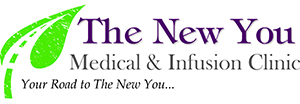Opioid Addiction Help in Fort Worth, TX

In the realm of addiction and addictive substances , not all addicts have to venture into a bad part of town to purchase their substance of choice. In fact, for people with an opioid addiction, their “dealer” may be the local pharmacist.
Often used as a strong painkiller, opioids and opioid addiction can effect just about anyone, soccer moms, lawyers, even nuns. The vast majority of these drugs are even prescribed by your doctor. However that doesn’t mean an addiction to, and dependence on, an opioid is okay.
What is an Opiate?
An opioid is a form of painkiller extracted from the poppy plant. Prescription opioids include morphine, codeine, oxycodone, hydrocodone, and methadone. Heroin is also an opiate. The difference is mainly in the form in which it’s presented. An opiate is a natural form extracted directly from the poppy plant, whereas opioids are synthetic versions made in labs.
Both of these drugs act as central nervous system (CNS) depressants, often having a described effect of “slowing things down.” In actuality, opiates play a dangerous game on neurotransmitters, particularly endorphins, the ones making you “feel good.” Opiates basically replace your natural production of these neurotransmitters and give you vast quantities more in exchange.
Look at it this way, you’re hungry and you walk into a cupcake factory. Normally you’d eat one, maybe two, but today you eat 20. You might feel great—temporarily. After the good feeling wears off however, you feel bloated, tired and are now probably diabetic . An opiate has the same effect on the chemicals that control pleasure and pain in your brain.
This is why a prescribing physician sets a firm limit on the use of such drugs. While they are designed to eliminate severe pain, you can still become addicted. In some cases, people prescribed opiates become addicted within the timeframe and have two choices; go through withdrawal or find more drugs.
How hard can it be to just stop? Well, withdrawal has some serious side effects of its own:
- Nausea
- Diarrhea
- Bone/Muscle pain
- Cramping
- Anxiety
- Insomnia
- Spiking fever
- Suicidal thoughts
- Seizures
- Coma
Opioid Addiction Symptoms
With a claimed 5 million people hooked on some variety of opiate, and an estimated 17,000 subsequent deaths a year, opioid addiction is a serious situation. When you look at the resulting symptoms and lasting impact of opioid addiction and dependence, you’ll see what an epidemic we’re facing.
Physical symptoms of opioid dependence can include:
- Constipation
- Nausea/Vomiting
- Euphoria (feeling high)
- Respiratory depression (slowed breathing)
- Drowsiness/Lethargy
- Poor coordination
- Kidney damage
- Liver damage
- Bleeding ulcers
- Insomnia
- Muscle spasms
- Increased pain (more than the drug was intended to treat)
- Coma
- Brain damage
Don’t think the list stops there. Apart from the physical ramifications of opiate dependence there are some very serious psychological effects as well. Opiate addiction can occur as a comorbid (co-occurrence) with mental conditions like: BPD (borderline personality disorder), anxiety disorders like GAD (Generalized anxiety disorder ), depressive disorders, schizophrenia, conduct disorder, anti-social personality disorder, and bipolar disorder. Other psychological symptoms can include:
- Anxiety
- Irritability
- Mood swings
- Hallucinations
- Delusions
- Paranoia
- Increased occurrence of mental illness (like the ones listed above)
- Memory issues
- Social withdrawal
- Alcohol dependence (alcohol is also a depressant and is often used to supplement opiates when not available)
- Depression
Opioid addiction is a serious condition—one which many suffer from unexpectedly. Imagine going to the doctor for back pain like a herniated disc , you’re prescribed painkillers, a few months later you’re in the throes of full opioid addiction.
Whether you are addicted to opiates from a lapse in judgement or unfortunate prescription drug side effects, today is the day you seek help. Preserve your tomorrow.
Request more information about opioid addiction help today. Call (817) 203-2760 or contact The New You Medical & Infusion Clinic online.
The New You Medical & Infusion Clinic
Address
100 Grapevine HwyHurst, TX 76054
(817) 203-2760
https://www.newyoumedclinic.com/
Hours
Mon:
10:00 am - 6:00 pm
Tue:
10:00 am - 6:00 pm
Wed:
10:00 am - 6:00 pm
Thu:
10:00 am - 6:00 pm
Fri:
Closed
Sat:
Closed
Sun:
Closed

